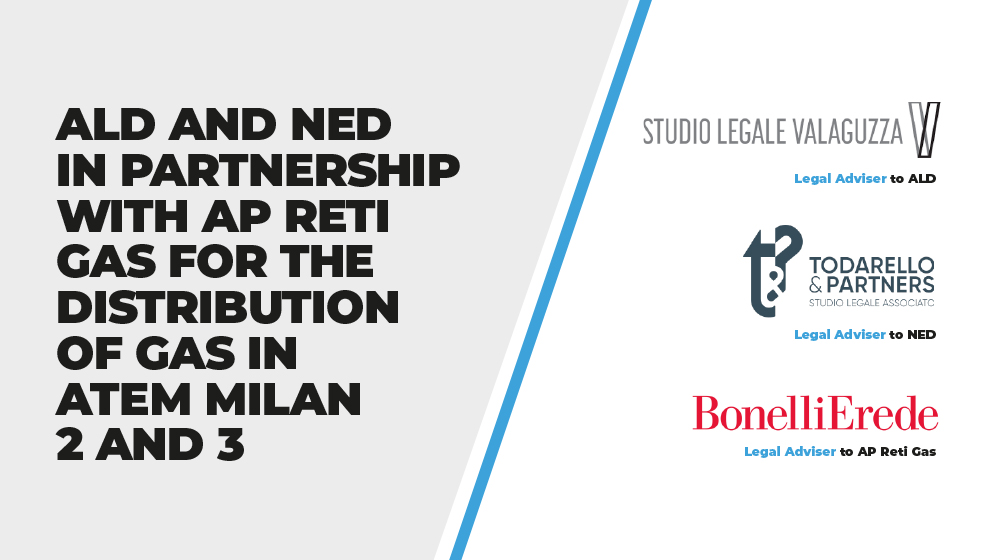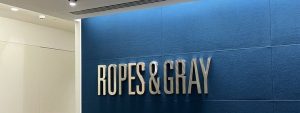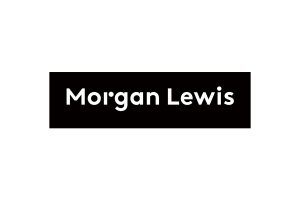ALD and NED, both public owned companies active in the management of the gas distribution service in 20 municipalities in the province of Milan, selected AP Reti Gas as the industrial partner for the joint participation to the coming tenders for the award of the service in ATEM Milan 2 and Milan 3.
10 bidders participated in the tender and AP Reti Gas presented the most advantageous offer.
ALD was assisted by Studio Legale Valaguzza with a team lead by Sara Valaguzza, founder of the Law Firm and expert of strategic procurement, supported by Lucia Martegani and Eugenio Pizzaghi.
NED was assisted by Todarello & Partners.
Federica Stevanin, general counsel of the Ascopiave group, oversaw the legal aspects of the winning offer for AP Reti Gas. BonelliErede acted as legal adviser to AP Reti Gas.
An Interview With Sara Valaguzza, Founder of Studio Legale Valaguzza
What are clients’ main concerns when entering a bid proposal like this one?
The actual legal framework does not relieve when a public owned company begins a path to select the best industrial partner; the main concerns arise around the regulatory vacuum.
The public contracts’ regulation does not cover the case. Indeed, if the public owned company can customise a strategy to develop a flexible and informal tender, the regulatory vacuum could become an extraordinary opportunity both for the economic operators and the public sector.
For the public bodies and their consultants, the first problem to tackle is conceiving and realising an “anti-fragile” procedure, strongly anchored to general principles of the administrative law, such as transparency, impartiality and most importantly, effectiveness.
There are many areas of risk and potential issues. Every decision must be carefully weighed.
In partnership scenarios, the effectiveness is achieved if the potential partners compete to combine their business with those of the public entity.
I believe that the Italian Public Contract Code is not a good example in respect to shaping a smart procedure to attract businesses.
The procedures defined by the Public Contract Code are based on the idea that the contractual relationship should be a juxtaposition. Instead, the aim of a partnership is to create an alliance.
Nevertheless, breaking away from the familiar regulation and choosing new paths requires courage and resolution. Our client had both the courage and resolution to build a new path; the results obtained show that we are on the right track.
Lawyers can set up a great opportunity, supporting public clients in their process of cutting loose from the regulation related to tenders and concessions, even providing tailor made solutions and reasoning about new procedures. In this way lawyers contribute to the creation of public value.
How do you assist them to ensure the decisions the client makes is the best one?
Our first task is understanding the reasons and perspectives of the client; this is essential to start a dialogue on the strategy to achieve the clients’ objectives.
The mutual trust between the client and his lawyers along with an honest debate allow to shape the most suitable procedure. We believe that all legal advice must serve the purpose of the client.
While shaping new rules and procedures for a public client, a solid experience, extremely qualified knowledge and awareness of the market is essential for lawyers.
There are many areas of risk and potential issues. Every decision must be carefully weighed.
When your client asks you to be a pioneer you must decide: are you able to think out of the box? What boxes ought to be ticked for companies to accept such tenders?
The clarity of rules, fairness, flexibility and reliability are the key factors for a tender to succeed.
Did you experience any challenges when working on this deal?
The most critical challenge was finding the correct balance between constraints and goals; we had to work hard to define rules able to set a compromise. Clear goals were written down in the tender documents and constraints have been kept to a minimum.
It was not easy to combine the general principles of public law with a market friendly approach. Indeed, this has been our major challenge as lawyers.
As Law Firm engaged in several ambits of strategic consultancy, including infrastructure and environment fields we work every day to create best practices for public clients to work faster and simpler.
How did you overcome them?
The issues concerning the mentioned balance between the constraints and goals have been solved exploiting the public law principle of maximum transparency and equality, without neglecting the market’s sensitivities. The partnership’s terms and conditions have been discussed with each competitor and the public client attended the dialogue with the specific reference also to the industrial aspects. Opening to debates and dialogues were essential factors to obtain the important result gained by ALV and NED.
A well-organised and complete data room allowed competitors to manage their due diligence on legal, economic and financial aspects before submitting their tenders.
Now the public-private partnership is ready to start, and the three companies can jointly participate in the ATEM procedures, focusing on their business: gas distribution.
How does this deal reflect the importance of public owned companies working on tenders?
Ten economic operators competed. This result demonstrates that public owned companies are an interesting target for the businesses and that public private partnerships represent an interesting instrument to be developed by the public sector.
The procedure we shaped could become a model for several cases of partnership.
Nevertheless, the marriage with the market is feasible only if the public sector can create efficient and flexible tenders.
The partnership is an opportunity to enhancing public value but cannot disregard a balance between public and private approaches.
Public clients can create a positive environment for partnerships, only if they take care of structuring relationships with the private sector based on mutual trust and respect.
Competitors could add real value to public services, with less bureaucracy and a more goal-oriented set of rules.
In this regard, it is fundamental to explore atypical procedures, as in the case of the partnership between ALD, NED and AP Reti Gas.





















